Scientific Advisory Board
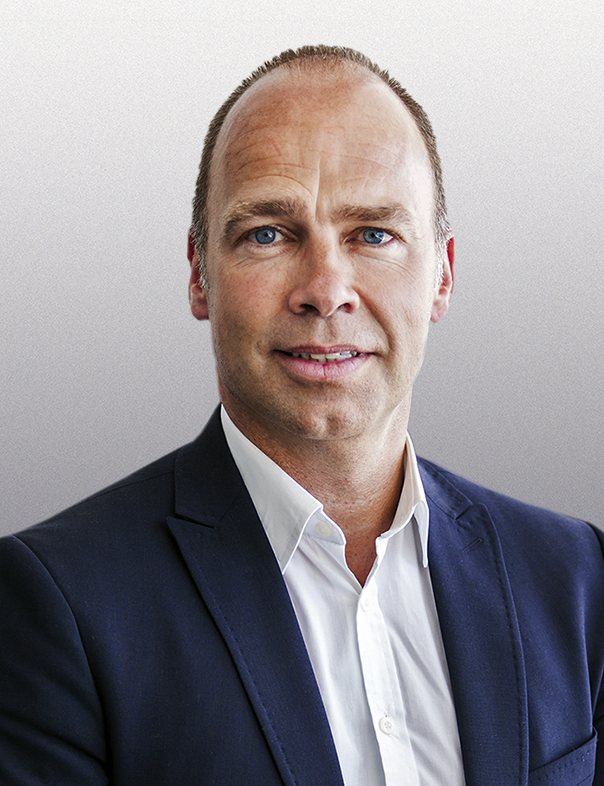 Since September 2011, Professor Thomas Bauernhansl is Director of the Fraunhofer Institute for Manufacturing Engineering and Automation IPA in Stuttgart in Germany. He is also Director of the Institute of Industrial Manufacturing and Management (IFF), which belongs to the University of Stuttgart. His scientific focus is on production organization, factory planning, energy efficient production, surface engineering, automation and process engineering. From October 2012 till January 2015, he was also Director of the Institute for Energy Efficiency in Production EEP at the University of Stuttgart. Bauernhansl studied mechanical engineering at RWTH Aachen University. After completing his PhD with honors, he embarked on his career with the Freudenberg concern in 2003, advancing to become Director of the Technology Center at Freudenberg Sealing Technologies. His key areas of work included site planning, factory planning, outsourcing, technology management and lean production. Lastly, Bauernhansl was responsible for the regions Europe, North and South America, optimizing the “global footprint” of the production network made up of over 50 production sites. Bauernhansl is on diverse advisory boards and management committees in industry, associations, research and politics. He is a member of WGP, the German Academic Society for Production Engineering, as well as being a member of the strategy committee of the German government’s “Platform Industrie 4.0” and Vice Chairman of the Steering Committee Alliance Industrie 4.0 BW. He has written and edited numerous books on topics such as adaptability in manufacturing, Industrie 4.0 and production management. |
 Marta Candeias holds a Master ‘s degree in Biological Engineering from the Technical University of Lisbon (Instituto Superior Técnico) and she is a PhD student in Technology Assessment. She works since 2009 in European Research and Innovation Framework Programmes Management. She is the Portuguese Delegate and National Contact Point (NCP) in the area of Nanotechnologies, Advanced Materials, Advanced Manufacturing and Processing, following closely Factories of the Future (FoF), Sustainable Process Industries (SPIRE) initiatives and European Innovation Council. She has also been nominated as an expert for the Artificial Intelligence and Digital Innovation Hubs initiatives in preparation for the future European program. Between 2007 and 2009 she did her research at Instituto Superior Técnico and participated in some national and European projects. Since 2009, Marta Candeias has participated in projects for the integration and the capacity building of NCP efforts in the themes that have been followed up in FP7 and H2020 (e.g. SMEsGoHealth, TrasnCoSME, NMP TeAm, NMP TeAm 2, NMPTeAm e and Access4SMEs). |
Peter Dröll Peter Dröll - Director for Prosperity, Directorate-General Research and Innovation - has been working in the European Commission for more than 20 years with positions in environment, enlargement negotiations, industry policy, innovation and research. He was a Cabinet member of Enlargement Commissioner Günter Verheugen and Head of Cabinet of the Science and Research Commissioner Janez Potočnik. Since 2010 he is at Directorate-General Research and Innovation where he was first responsible for Innovation then for Industrial Technologies. Following the re-orientation of DG Research and Innovation towards sustainability, his competences have been enlarged to include industrial R&I agendas and business intelligence as well as knowledge valorisation policies. Before joining the European Commission in 1991, Peter worked as a lawyer in a German law firm. Peter is a lawyer by training with a doctorate degree in German constitutional law and European law. |
Maximilian Fleischer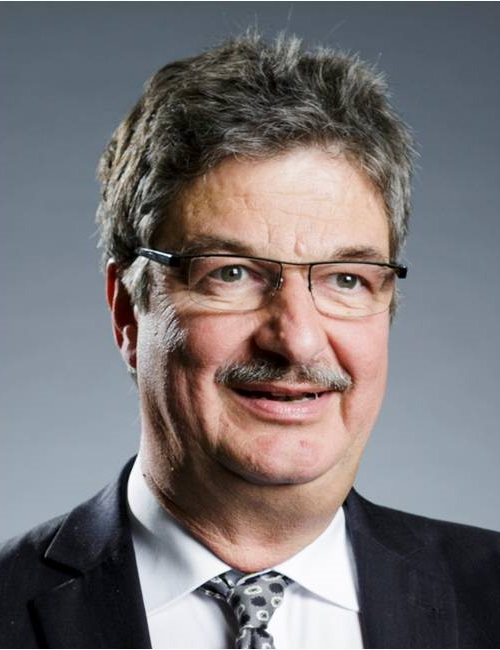 Maximilian Fleischer was born in Munich, Germany, where he studied technical physics. With a research thesis on high temperature semiconducting Ga2O3 thin films and their usage as gas sensors, he received the doctoral degree in Physics from the Technical University in Munich. With the continuation of his gas sensor research, he received his habilitation in Physics and a honorary professorship from the Technical University of Budapest. He is a long years member of the Corporate Technology of Siemens AG, bridging academic and industrial research. His work includes piezoelectric motors, new types of semiconducting metal oxides, high-T electrochemical sensors, tunable laser diode spectroscopy for gas sensing, IR-spectroscopy for on-line analysis, work function type MEMS gas sensors and living cell based sensors. His recent activities include energy related topics with a certain focus on conversion of renewable electricity into chemicals, new energy storage and dispersed photovoltaic energy generation. He is acting as Chief Expert for Energy Technologies where he takes the scientific lead of the research directions and long-term technology road mapping. He is engaged in various entities, member of the editorial board of the Journal for Measurement Science & Technology, member of the board of trustees for Max Planck and Fraunhofer Institutes, and member of the steering committee in various conferences. He published about 300 times, yielding an H-index and is co-inventor within about 180 international patent families. |
Prof. Peter Fratzl From 2017 to 2020, Peter Fratzl is Chairman of the Chemical-Physical-Technical Section of the Max Planck Society. Peter Fratzl has headed the Biomaterials Department at the Max Planck Institute for Colloids and Interfaces since 2003 and is one of the pioneers in the field of biological and biomimetic materials. The study of natural materials such as wood, bones, mussel shells, glass sponges, protein fibres or insect shells provides him valuable information for the development of new material concepts. Peter Fratzl is member of the National Academy of science and Engineering (acatech) and author/co-author of about 500 publications in journals and books moreover he is winner of numerous scientific awards. |
Marco Falzetti Marco Falzetti holds a Master of Science in Aeronautical Engineering at Università degli Studi di Roma La Sapienza. He starts his professional research activity in 1990 at Centre for Development of Materials (CSM) in Italy where he acts as a researcher, focusing on the application of Artificial Intelligence techniques in process modelling and control problems. Marco Falzetti is responsible for numerous European projects in the area of iron and steelmaking and acts as Italian representative in various European committees. In the period 1999-2003, he worked as National Detached Expert at the Research Directorate General of the European Commission in Brussels. In the material unit of the Directorate G he acted as scientific officer for the ECSC Steel Research programme and the 5th Framework programme. From 2003 to 2015 he worked at CSM as Manager of EU Research Affairs, where he managed European programmes and international developments for advanced materials. Since 2016 he is the Director of the Agency for the Promotion of European Research (APRE). He has launched the Alliance for Materials Initiative (A4M), supported by the EU Commission, where he is acting as chairman of the management board. Furthermore, he is the chairman of the European Technology Platform on Advanced Engineering Materials and Technologies (EuMaT) and a member of many advisory boards (including the NMP-B part of H2020 programme) as well as steering committees of different |
Andreas Förster Andreas Förster holds a PhD in Physical Chemistry from the Julius Maximillian He has long-term experience in the management of national and international research and innovation projects and networks. As a coordinator of several EU projects, he organizes numerous international conferences and workshops, and coordinates large lecture programs with several hundred scientific lectures. He is board member of SusChem and delegate for DECHEMA in the SPIRE General Assembly. |
Gerald Kern Gerald Kern was coordinator of the EU-funded conference “INDustrial TECHnologies 2018 - Innovative industries for smart growth” (INDTECH2018), held in Vienna from 29-31 October 2018 as an event of the Austrian Presidency of the Council of the European Union. |
Prof. Rodrigo Martins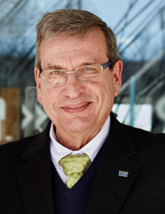 Additionally, he holds the Chair of the European Committee Affairs of European Materials Research Society (E-MRS), the Global Leadership and Service Award Committee of the International Union of Materials Research Societies (IUMRS) and the Vice-Chair of Energy, Materials Industry Research Initiative (EMIRI). Rodrigo Martins has been involved in the pioneer European research on amorphous silicon semiconductors and is a pioneer - together with his group - inworldwide activity related to passive and active oxides, the so called transparent electronics and he is one of the inventors of the so-called paper electronics, where paper is exploit not only as a substrate but also as a functional component in active devices. He published over 700 papers during the last 10 years and got more than 14 international and national prizes and distinctions for his work. |
 After graduating in Materials Science from University of Erlangen, Matthias Müller received his PHD 1998 in the field of Semiconductor Crystal Growth under supervision of Prof. A. Winnacker as well in Erlangen.
He started his professional career at the Central Research and Development of Siemens AG in 1998, where he worked on the development of SiC semiconductor substrates in the early industrialization stage. In 2001, he joined SCHOTT Lithotec AG in Jena as production manager for optical CaF2 - crystals.
From 2004 to 2012, he worked with increasing business and technology responsibility as plant manager and head of product group on solar silicon crystals and wafer technology for SCHOTT Solar and Wacker-SCHOTT Solar. In 2012, he joined SCHOTT Corporate R&D in Mainz as Corporate Business Development Director. Starting 2015, he took over the position as Head of Materials Development at SCHOTT Corporate R&D. Since July 2018, he is as Executive Vice President in charge of the whole SCHOTT Central R&D with locations in Germany, US and recently as well in China, providing with his teams new technologies and products to all business fields of SCHOTT. |
Petr Pracna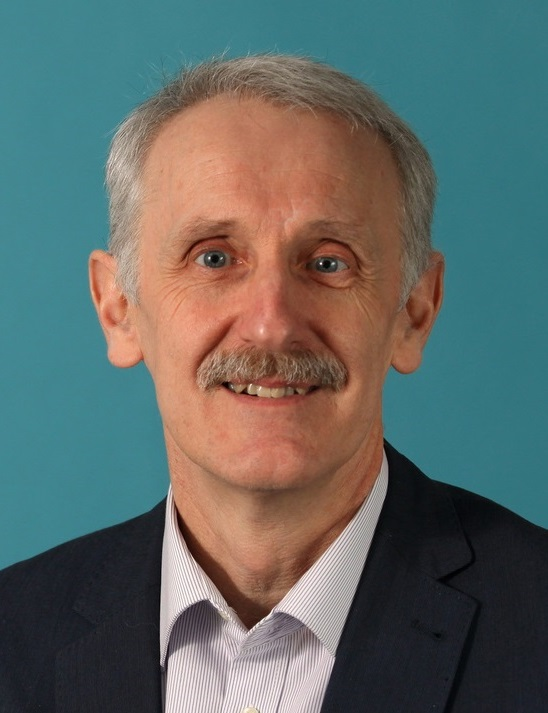 Petr Pracna holds the master degree in chemical physics from the Faculty of Mathematics and Physics of the Charles University, Prague. He got his PhD. in 1988 from the J. Heyrovský Institute of Physical Chemistry of the Academy of Sciences of the Czech Republic where he worked until 2012. His research focused on the investigation of complex molecular dynamics and its manifestations in the molecular vibration-rotation spectra. He joined the National Information Centre for European Research in the Technology Centre of the Czech Academy of Sciences in 2013 as the National Contact Point for the Research and Technological Development (RTD) Framework Programme of the European Union Horizon 2020 in the fields of Nanotechnologies, Advanced Materials, Biotechnology and Advanced Manufacturing and Processing (NMBP) and Future and Emerging Technologies (FET). He is also the national delegate to the Board of Funders of FET Flagships. Petr Pracna participated in the project for capacity building of the NCP network NMPTeAm2 and currently has joined the ACCES2EIC project supporting the network of NCPs for the Enhanced European Innovation Council (EIC) Pilot. |
Klaus H. Sommer He held positions of increasing responsibility at Bayer in Germany in Central Research and in the US in the Polymers business, where he was responsible for Bayer’s polymers research in the US. In July 2002 Dr. Sommer was appointed to Senior Vice President and Head of Customer and Product Management for Bayer Technology Services, which, since July 2016, is now the Corporate Function Engineering & Technology. |
Fabrice Stassin He worked for a few years as Managing Director of a Belgium-based Research & Technology Organization (RTO) active in white biotech and later as Strategy Consultant at Accenture advising clients from chemical, oil, pharma industries in the Netherlands, Belgium and USA in the fields of innovation, sustainability, and value creation through mergers and acquisitions. In 2008, he joined Umicore - an industrial leader in advanced materials and recycling – as innovation manager covering clean technologies. Since 2012, he has been part of the Brussels-based team of Umicore Government Affairs focusing on advanced materials for clean energy and clean mobility. He holds a Ph.D. in Chemistry and Materials Science as well as a Master in Management and Entrepreneurship from the University of Liège in Belgium. |
Hélène Ulmer-Tuffigo Hélène Ulmer-Tuffigo acts as NCP and presentative of the NMBP program committee at the Ministry of Higher Education, Research and Innovation and as an expert evaluator for the European Commission (FP6, FP7 and H2020). During the first half of 2014, she was appointed by the European Commission as Chair of the panel review of the COST program. She is member of the Advisory Group for the Horizon 2020 part on Leadership in Industrial and Enabling Technology - Nanotechnologies, Advanced Materials and Advances Manufacturing and Processing ("H202 LEIT NMP). Dr. Hélène Ulmer-Tuffigo was in charge of the strategic evaluation and international relations in INAC (Institut Nanosciences et Cryogénie) from 2011 to 2018. Hélène Ulmer-Tuffigo studied physics and obtained her PhD in semiconductor physics from the University of Grenoble in 1990. She received the “IBM young researcher prize” for her thesis. She subsequently joined the CEA as a research scientist, where she spent twelve years in a basic research role. She is author of over 50 publications and communications in the area of optics of semiconductor nanostructures, optical micro cavities and semiconductor Nano crystallites. |
Prof. Roberd Weidner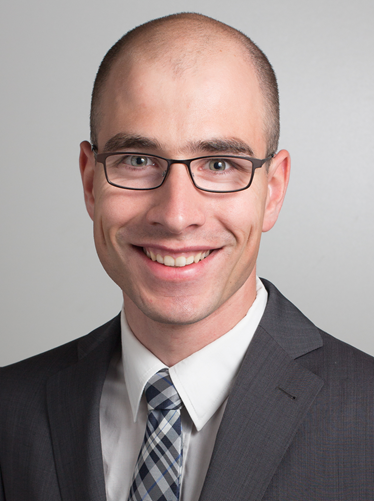 Robert Weidner studied mechanical engineering at Technical University Hamburg, Germany until 2010. After completing his PhD at Helmut-Schmidt-University Hamburg in the area of production planning, he was leader of the junior research group smartASSIST (smart, AdjustAble, Soft and Intelligent Support Technologies, which was founded by the German Ministry for Edcuation and Research between 2014 and 2020) as well as group leader for robotics and automation at the Laboratory for Manufacturing Technology, Helmut-Schmidt-University. Additionally, since 2018 he is professor for production technology at the institute of mechatronics at University Innsbruck and managing partner at exoIQ, a spin-off of the Helmut-Schmidt-University.
Weidners interdisciplinary research group is researching in the field of supporting technologies (wearable systems such as exoskeletons, assistance systems and robotic systems) as well as methods for the development and evaluation of corresponding technologies and concepts for human-machine interaction. Moreover, he has been committed for years to the promotion of young talents. To this end, he had once founded and directed the TeenLab, a university for young people.
The research of Weidner and his team is honored by different awards, e.g. academics junior scientists 2017 or Top 40 under 40 from human capital. Weidner is also reviewer for different journals, conferences and funding organizations, member of different advisory boards in research projects as well as founder and speaker of the Young Forum: Engineering Sciences (Junges Forum Technikwissenschaft – JF:TEC).
|

























































